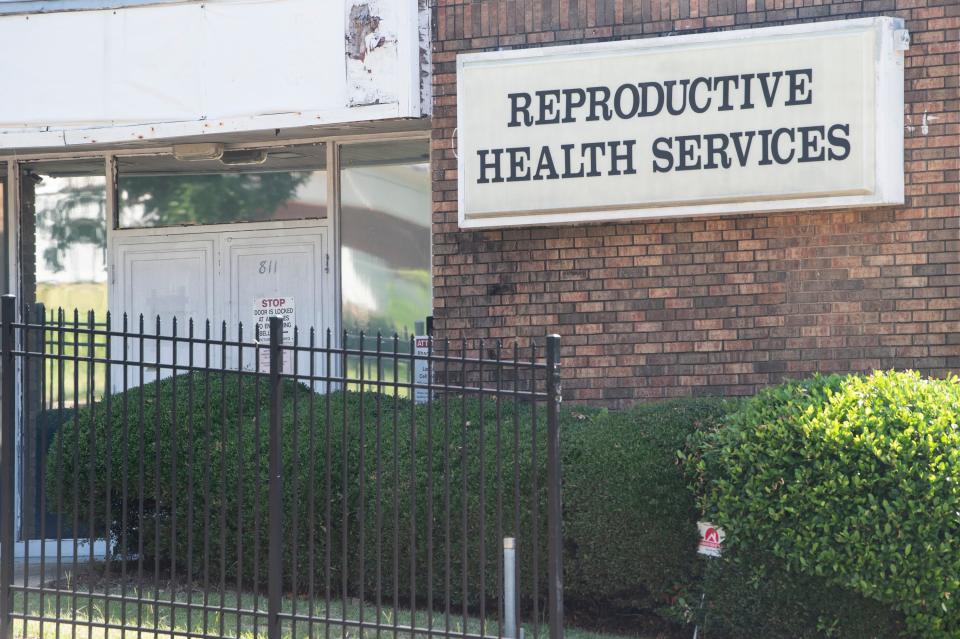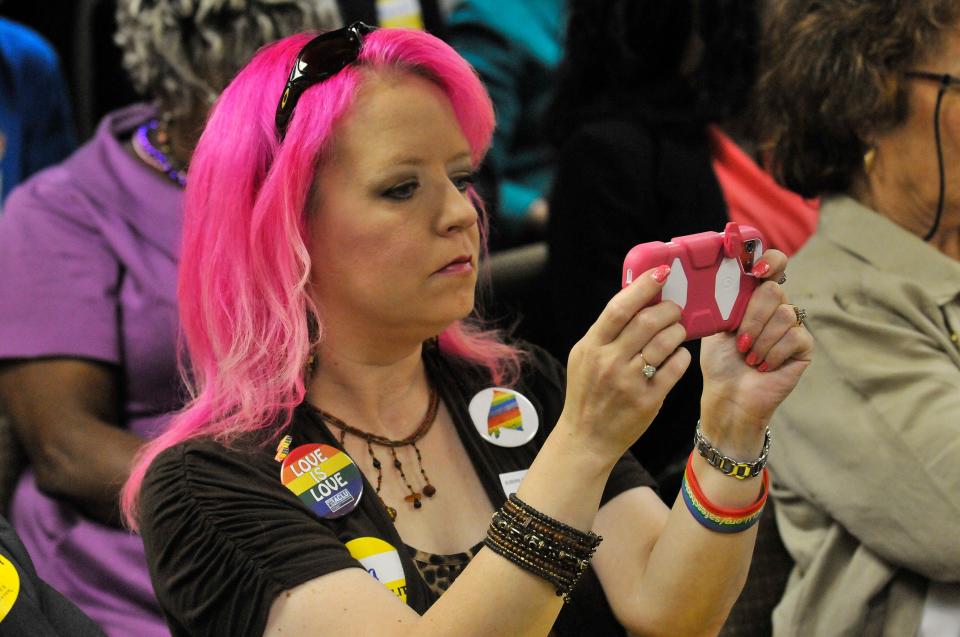Closed Montgomery abortion clinic still working to serve community
- Oops!Something went wrong.Please try again later.
Abortions have stopped at Reproductive Health Services, a Montgomery clinic that was one of only three in the state providing abortions. But the work goes on.
Abortions stopped on June 24, when the United States Supreme Court reversed Roe vs. Wade, setting the groundwork for states to decide what restrictions will be placed on abortion. Alabama Attorney General Steve Marshall that day ordered clinics to stop providing abortions.
In 2019, Alabama lawmakers passed one of the most restrictive abortion laws in the nation, allowing the procedure to be performed only if the mother's life is threatened.
Related news: Supreme Court's Roe v. Wade decision ends legal abortion services in Alabama
“Both the federal district court and the plaintiffs recognized that there is no basis for a continued stay of the duly-enacted law in light of the U.S. Supreme Court’s decision in Dobbs v Jackson Women’s Health Organization," Marshall said that day. "Thus, Alabama’s law-making elective abortions a felony is now enforceable. Anyone who takes an unborn life in violation of the law will be prosecuted, with penalties ranging from 10 to 99 years for abortion providers."

More news: New technology: 360-degree body cameras could be future of law enforcement
The clinic in Montgomery performed abortions one day a week since doctors working there traveled from out of state, said Mia Raven, media liaison for the clinic. Raven is also executive director for POWER (People Organizing for Women's Empowerment and Rights) House, which operated in conjunction with the clinic.
"We still have people drive-in," she said. "We tell them where abortions are legal. We have to be very careful with what we say, under Alabama law; we are in uncharted territory.

"We don't want to be accused of aiding and abetting abortion. So we can't give directions to abortion clinics in other states; we can't offer travel money."
The clinic has received legal advice from "several" attorneys on what information it can provide running afoul of the law, Raven said. Past laws outlawing abortions in the state had language banning aiding and abetting the procedure.
"We are just trying to be safe until [attorney general] Marshall makes his determination on what aiding and abetting is," she said.
More news: Alabama attorney general uses Dobbs decision to defend transgender medicine ban
The clinic had five full-time employees and 8 part-time employees.
POWER House is still operating, offering free pregnancy testing, Plan B emergency contraceptives, condoms and other health-related items.
"We are still here, doing what we can," Raven said. "We still want to serve."
Abortions aren't likely to be offered in the clinic under the 2019 Alabama law.
"We are not a hospital setting," she said. "We don't meet the requirements under Alabama's law."
Raven said the only way abortion services will return to Alabama as they were permitted before the June 24 ruling would be with the passage of a federal law protecting the procedure on a national level. And that, she said, is a long shot.
"Unless the midterms give us a massive, unexpected gift, I don't know how that will happen," she said of the approaching general elections in November. "States in the South will never support a federal law, because the districts have been gerrymandered to a point where that's almost an impossibility."
Contact Montgomery Advertiser reporter Marty Roney at mroney@gannett.com.
This article originally appeared on Montgomery Advertiser: Montgomery: Closed abortion clinic still working to serve community

